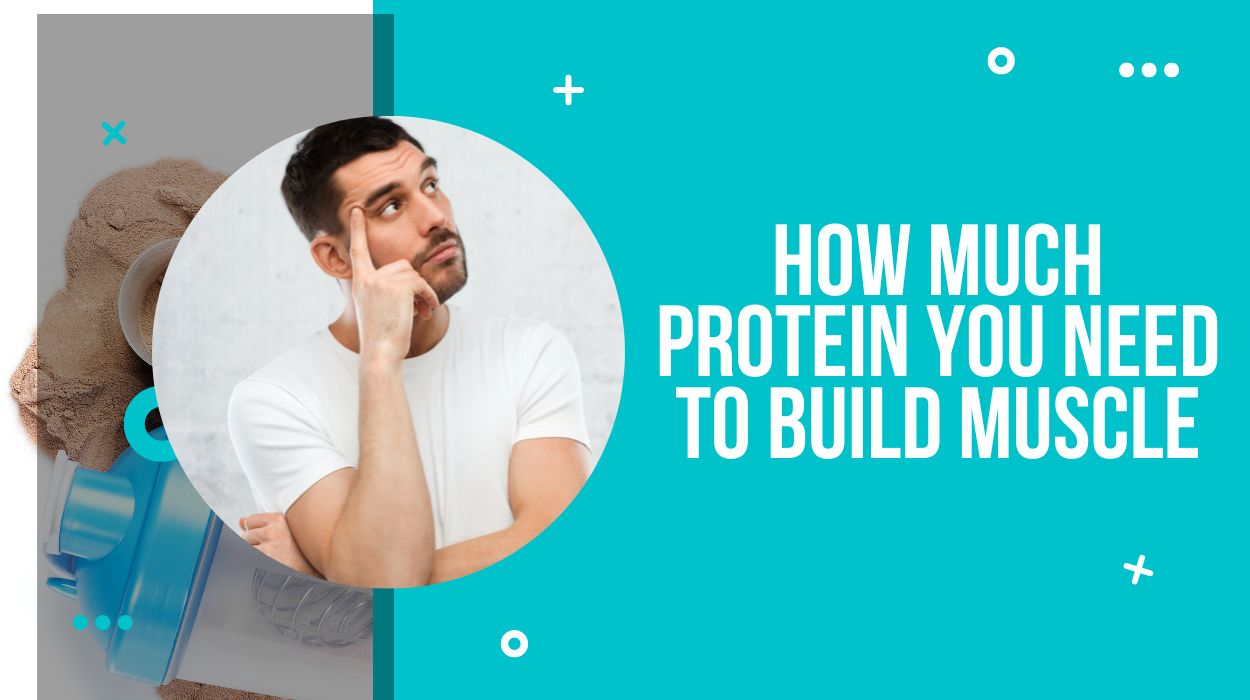Protein is undoubtedly beneficial for muscle growth. Besides building muscles, protein is a macronutrient that contributes to muscle repair. The amounts of protein required to maintain and develop muscle vary widely among sources, calculations, and advice.
The DRI (Dietary Reference Intake) for protein per pound of body weight is 0.36 grams (0.80 grams).
In essence, this means:
- Sedentary men need 56 grams of protein per day
- A sedentary woman needs 46 grams of protein per day
This amount may be sufficient to prevent deficiency, depending on your activity level, age, muscle mass, and physique goals. Let’s understand what protein is to figure out how much you require.
Among macronutrients (nutrients that people require in large amounts), proteins are among the most important. Polypeptide chains containing amino acids make up proteins.
As you know, some chains are natural – known as ‘non-essentials’ – and chains that cannot be made. Several amino acids are essential, which means you need to obtain them from food. Using chicken breasts, for example, as a protein, your body can build everything from muscle to organs and hair.
An amino acid chain forms the structure of proteins, which are small molecules. A result of this is the formation of long protein chains and folding the chains into complex shapes.
Although your body produces some amino acids, essential amino acids must be obtained from your diet. Protein has an equivalent effect when it comes to quantity and quality.
The amino acids present in animal proteins are in high ratios, which makes them easily assimilated. The reason for this is that animal tissues are similar to human tissues.
You likely receive adequate protein when you eat animal products like meat, eggs, and dairy every day.
When you don’t eat animal products, you may have difficulty getting all the essential amino acids and protein your body needs. Most people don’t need to procure protein supplements, but it is for bodybuilders and athletes.
Protein and Weight Loss
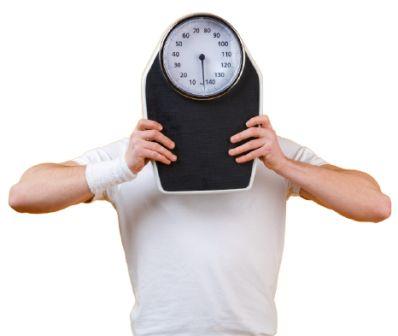
Protein can be used to build strength but can also help shed excess pounds. As protein increases your metabolic rate, it also decreases your appetite, reducing your chances of gaining weight.
According to a study, even modest increases in protein, from 15% to 18% of calories, reduced fat loss after weight loss by 50%.
The importance of protein for pregnant women
Protein is necessary for the body to create new tissue during pregnancy. Protein is beneficial to both mothers and babies.
Protein is imperative for development during pregnancy, not only because it helps you usually grow, but also because it contributes to other important aspects such as:
- Tissue regeneration and repair.
- Making antibodies to strengthen their immune system.
- During the production of hormones and enzymes.
- When muscles are properly nourished, they work more efficiently.
- Oxygen is transported in the blood.
Proteins are essential for your growing baby’s development while pregnant. A solid foundation is then created in the early years, throughout childhood, and into adulthood.
Reference Nutrient Intakes (RNIs) of protein are 0.75g per kilogram of body weight per day for adults, plus six grams more for pregnant women.
A woman who weighs 60 kilograms should consume 60 x 0.75g of protein per day = 45 grams per day and 51 grams during pregnancy.
Muscle growth and the benefits of protein
Protein consumption, along with timing, plays a vital role in promoting muscle growth. Exercise that increases muscle protein production (MPS) is resistance training. It can also be stimulated by eating protein.
A strength-trained athlete should consume protein equally during each meal and snack to ensure they get a balanced dose of protein throughout the day. A higher protein intake has a more significant impact on MPS in this situation than if the protein is consumed in more substantial quantities in the morning, at lunch, and dinner. MPS can be stimulated by protein-rich snacks eaten before bed.
An MPS is made up of molecules derived from plants and animals. As one of the “fast-digesting” proteins, leucine is present in many plants and animal proteins. Here are some of the items included:
- soy
- poultry
- fish
- nuts
- seeds
- beans
Through one or more mechanisms, they stimulate MPS. In the same way, egg and milk proteins are slowly digested to prolong the MPS process.
Currently, we cannot tell if ‘fast’ proteins are better than ‘slow’ proteins.
We should know that plant-based proteins can also be essential as an alternative to solely focusing on meat sources. Vegans and vegetarians who plan carefully and pay attention to their overall protein intake can maintain muscle mass.
Do You Get Enough Protein?
According to Institute of Medicine guidelines, protein should account for 10 to 35 percent of calorie intake by adults over 19 years. A protein-rich diet provides between 200 and 700 calories. To determine your daily protein requirement, multiply 0.8 grams of protein per kilogram of your body weight. A woman weighing 65 kilograms or more would consume 54 grams of protein, while a man weighing 70 kilograms or more would consume 65 grams.
Signs of Protein Deficiency
In nearly every aspect of your body, protein deficiency can cause problems. There are many symptoms associated with it as a result.
Symptoms of protein deficiency can appear even at a marginally deficient level. The following is a list of them as well as a few of the typical signs of Kwashiorkor.
Edema
The most common symptom of Kwashiorkor is edema, which is characterized by swollen, puffy skin. Fluid builds up in the tissues, causing swelling. This may be due to humans’ most copious protein, albumin, found in their blood plasmas. Low levels of serum albumin are a result of protein deficiency, which lowers oncotic pressure.
Liver fat
Kwashiorkor does not just cause fat to accumulate in the liver. The effect of Kwashiorkor is also enhanced on adipose tissue. It appears that this condition is linked to protein deficiency, despite studies suggesting impairment of lipoprotein synthesis. If it’s not treated, increasing inflammation, liver scarring, and possible liver failure can result from fatty liver disease.
Problems with the skin, hair, and nails
Hair, skin, and nails, all made primarily of protein, are often deficient in protein. Skin depigmentation, flakiness, and redness are often symptoms of protein deficiency. Aside from hair loss and brittle nails, side effects may also include hair loss and brittle nails.
Fatigue and loss of muscle mass
You get most of your protein from your muscles. As dietary protein becomes scarce, the body draws proteins from skeletal muscles to preserve more essential tissues and functions. Therefore, muscle wasting is the result of protein deficiency.
Fractures at a higher risk
Protein helps maintain bone density and strength. An inadequate protein intake reduces bone mineral density and increases fracture risk.
Growth in children is slowed.
Consequently, protein is essential for maintaining muscle and bone strength and for growth. Children whose bodies need a steady supply of nutrients are especially at risk of deficiency or insufficiency. Malnutrition is most often manifested by stunting in children.
The best protein-rich foods you can eat to build muscle
Several macronutrients, including protein, are essential to the growth and maintenance of muscles. In addition to providing building blocks for body tissue, it contains several amino acids required by the body. Animal meat, dairy products, nuts, seeds, legumes, vegetables, and fruits are all high-protein foods that can help increase muscle mass.
When planning a muscle-building diet, you should include high-protein food sources like these foods.
Egg Whites
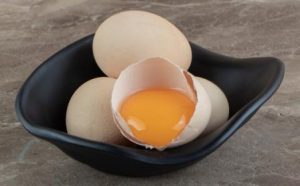
One of the highest quality protein foods is egg whites, which contain very few calories. In addition to good sources of protein, vitamins, and minerals such as vitamin B2, vitamin B5, and selenium, they are cholesterol-free and fat-free. It is estimated that an egg white (large) contains 3.5-4 grams of protein.
Broccoli
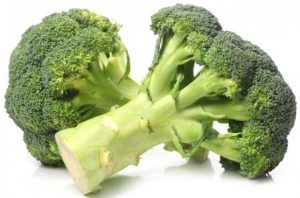
Broccoli is an excellent source of protein since it contains all the essential amino acids. Aside from this, it also includes many nutritional elements, including fiber and vitamins K and C.
Spinach
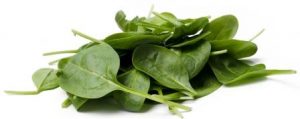
Spinach is one of the most protein-rich green vegetables. Besides containing all the essential amino acids, it also contains folate, iron, magnesium, potassium, and vitamin E.
Cauliflower
Cauliflowers and broccoli both contain similar protein levels. Vitamins C and K are in high concentrations in this food. In this, you can also find calcium, iron, phosphorus, magnesium, and other nutrients.
Chick Peas
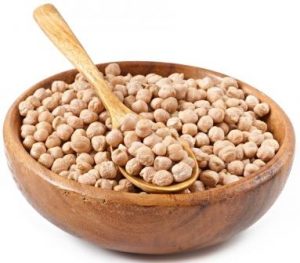
Since chickpeas are rich in protein, chickpeas have become a popular ingredient. Besides assisting you in losing weight and building bone density, they provide several other health benefits. They can also supply a lot of fiber along with vitamins and minerals.
Green Peas
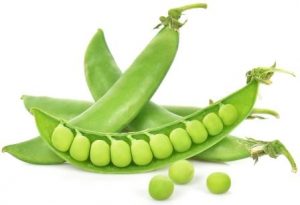
The protein content of green peas is more significant than its calorie content. Potatoes are packed with vitamins A, C, fiber, iron, folate, manganese, folate, thiamine, and manganese.
Lentils

Despite their high fiber and protein content, lentils remain low in carbohydrates. These foods are a great source of protein from plants, making them a good meat alternative.
Their magnesium, zinc, and potassium content makes them a great source of vitamins and minerals. By including lentils in your diet, you can improve the health of your digestive system. From lentils and whole wheat flour, you can make a healthy meal rich in protein and nutrients.
Guava
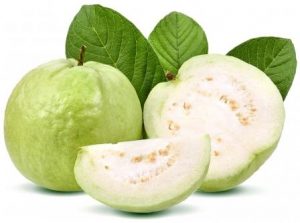
Protein is a good building block for muscles, as is found in guavas. With low calories and high protein content, it is a powerful source of energy. In addition to potassium, it is high in fiber. The immune system of the body is benefited by vitamin C found in guava fruit as well. We can see two grams of protein in one guava.
Apricots
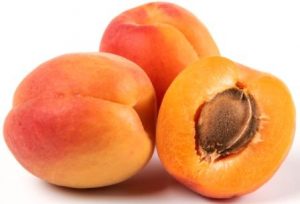
An apricot is a healthy snack because it contains a low number of calories and a substantial amount of protein. Vitamin A and C are also abundant in them. Fresh apricots contain 0.5 grams of protein.
Mixed Nuts
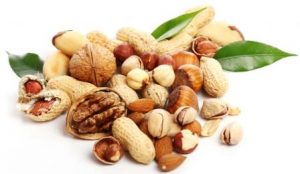
Peanuts, almonds, walnuts, cashews, pecans, and pistachios have high protein content, making them perfect for snacking. They are packed with powerful nutrients. Not only are these foods rich in healthy fats, but they are also high in vitamins and minerals. Mixing nuts into your diet can provide you with more health benefits.
Pumpkin Seeds
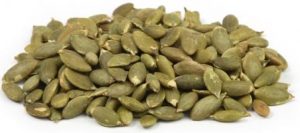
Snacking on pumpkin seeds is a good idea for your diet. They contain proteins, fiber, vitamins, minerals, and antioxidants, essential to good health.
Flax Seeds
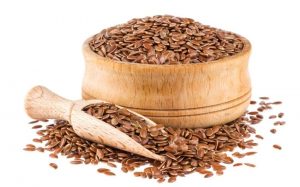
The protein content of flax seeds is unparalleled among plant foods. They are high in protein. Fibre, omega-3 fatty acids, vitamins, and minerals, in addition to their many other benefits, are among the help they provide.
Milk (1 percent fat)
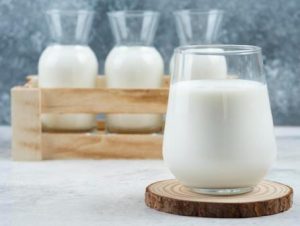
Low-fat Milk provides a good source of protein. There is a difference between whole milk and low-fat milk due to the amount of fat they contain. Full-fat milk contains 3.25% fat, but low-fat milk has only 1.5% fat.
1% milkfat.
According to some research, whole Milk has a more excellent nutritional value than low-fat Milk and skim Milk. Compared to entire Milk, low-fat Milk provides a similar level of protein and calcium.
Cottage cheese with low fat
The high protein content of cottage cheese enables it to provide nutrients such as B-complex vitamins, zinc, copper, and choline. In a small cup of Cottage cheese, there are 25 grams of protein (this means more protein and less fat). Cottage cheese contains the majority of its protein content in the form of casein.
Greek Yogurt
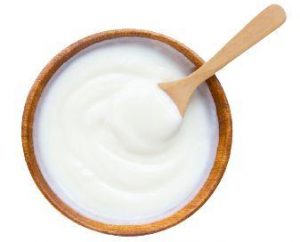
Greek yogurt is a protein-rich food with few sugars and carbohydrates. The traditional yogurt-making process is enhanced by straining to produce Greek yogurt. When the yogurt is strained, and the excess watery whey is removed, it becomes thicker, denser, and creamier. We can substitute greek yogurt for animal meat.
Whey Protein
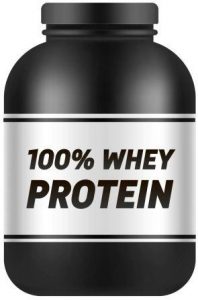
The consumption of protein-rich supplements is vital for achieving your daily protein needs.
Its high quality and content of essential amino acids make it an ideal protein source. The benefits of whey protein include building muscles and reclaiming muscles. We can find approximately 25-30 grams of protein in one scoop of whey protein (30-50 grams). It is easy to meet your protein’s DV% (daily value) by adding Whey protein to your diet.
Warning
You may suffer from health problems if you consume too much protein in your diet. Having too much protein can lead to gaining too much weight. Low protein diets high in red meat and saturated fat cause kidney stones. However, a high protein diet high in red meat is beneficial for preventing cancer and heart disease.

